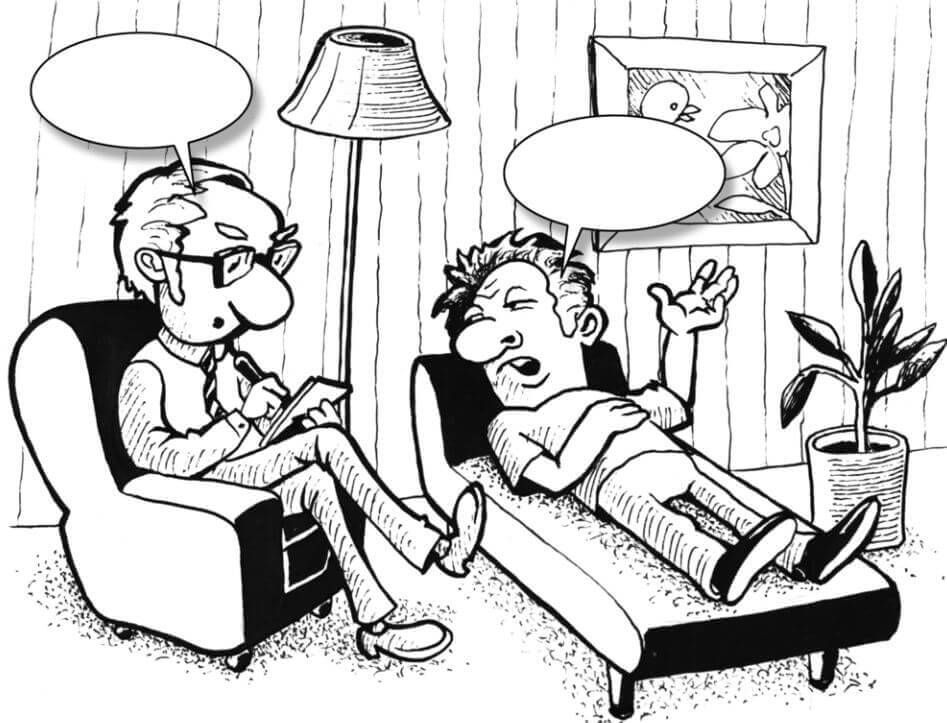Freud represents the end of criticism and, at the same time, its decline, his psychoanalytic theory has provoked important rejections and debates about the validity of the method, but what we cannot criticize are the advances he has made in philosophy, psychology and scientific medicine. .
Pseudoscience or science, as everyone wants to consider it; Freud inaugurated the line of thought based on the destruction of the concept of the self through the study of the unconscious. This fundamentally influenced all 20th-century disciplines.
In the wonderful realm of the spirit, I will be free like the others
? Helen Keller?
1. Desire and repression: as human beings we are, we all have desires and returns that we feel compelled to control before society, in a way, sometimes we are not even aware of it, and some of the acts that may be those considered most rational are motivated by our unconscious.
In many situations, we behave in the way that accepts the culture in which we live immersed, not as we really thought we would be happy. Desires are thwarted in these situations because they are considered immoral, illegal or unworthy.
The curiosity that arises from this behavior is in the contradiction that provokes in ourselves and that emerges subliminally in dreams, fantasies or failures Why are we so limited by what others think of us?
2. I, this and about me: Freud himself expands his theory set out in 1915 on the human spirit and explains in 1923 that it is divided into three parts: on the one hand, we have the conscious part of the subject, the ‘I’. ‘, that we are in a controlled and limited manner; on the other hand, he?id?es the unconscious ruled by the principle of pleasure. I mean, is it? Onmoi? Fundamental to our development as a people.
This “superme” is composed of the moral norms that we have internalized since we were children, and that ends between guilt and morality.
FOLI: As they believed in antiquity, the human spirit needs harmony, we are no longer talking about the brain cells that balance the four moods, but the three parts of the mind mentioned, according to Freud, the imbalance causes neurosis or neurosis. Psychosis.
The curiosity or importance of this statement at the time is to consider madness away from mental or organic wounds.
1. Language strength: when a patient wants to undergo a study of his unconscious by some problem, the remedy falls on speech, language is a place where it is possible to recognize internal conflict, because the person speaks of any subject without restrictions. .
The unconscious is structured like a language
? Jacques-Marie Emile Lacan?
2. Free Association: through language, the patient expresses contents that, for him, are still unconscious, which he does not recognize superficially through his “I”.
3. Interpretation of sleep: if one of the ways in which our desires are manifested is through dreams, they must be studied, dreams let out trauma and conflict to be resolved, we are what we dream and dream of. Are.
4. – Role of the psychoanalyst: precisely this last point is what the psychoanalyst is willing to perform and allows the conscious study of the unconsciousness of the person.
Could you tell your subconscious to calm down? It’s my subconscious. Do you remember? I can’t control it.
? Nolan, creation?
5. Culture: it is a way to configure the theme as configured. Return of information. Each era has its peculiarities and its ways of being that must be studied by the psychoanalyst to understand what the effects are on the patient.
Symptoms of psychic pathologies take on the typical forms of the societies in which subjects live.
? Nora Sternberg of Rabinovich?
6. The Oedipus complex: this is perhaps the greatest curiosity of the unconscious theory. Freud noted in his research that the man moves instinctively and one of them is known as the “murder of the father”. The figure of the mother becomes the revelator, the essential thing and one of the desires of the subject is to replace the figure of the father.
Culture, as we have said, plays an important role in the realization of the “I”. In this way, he ensures that desire does not come true, which leads to morality and religion. Repression and the Oedipus complex can be pathological.

